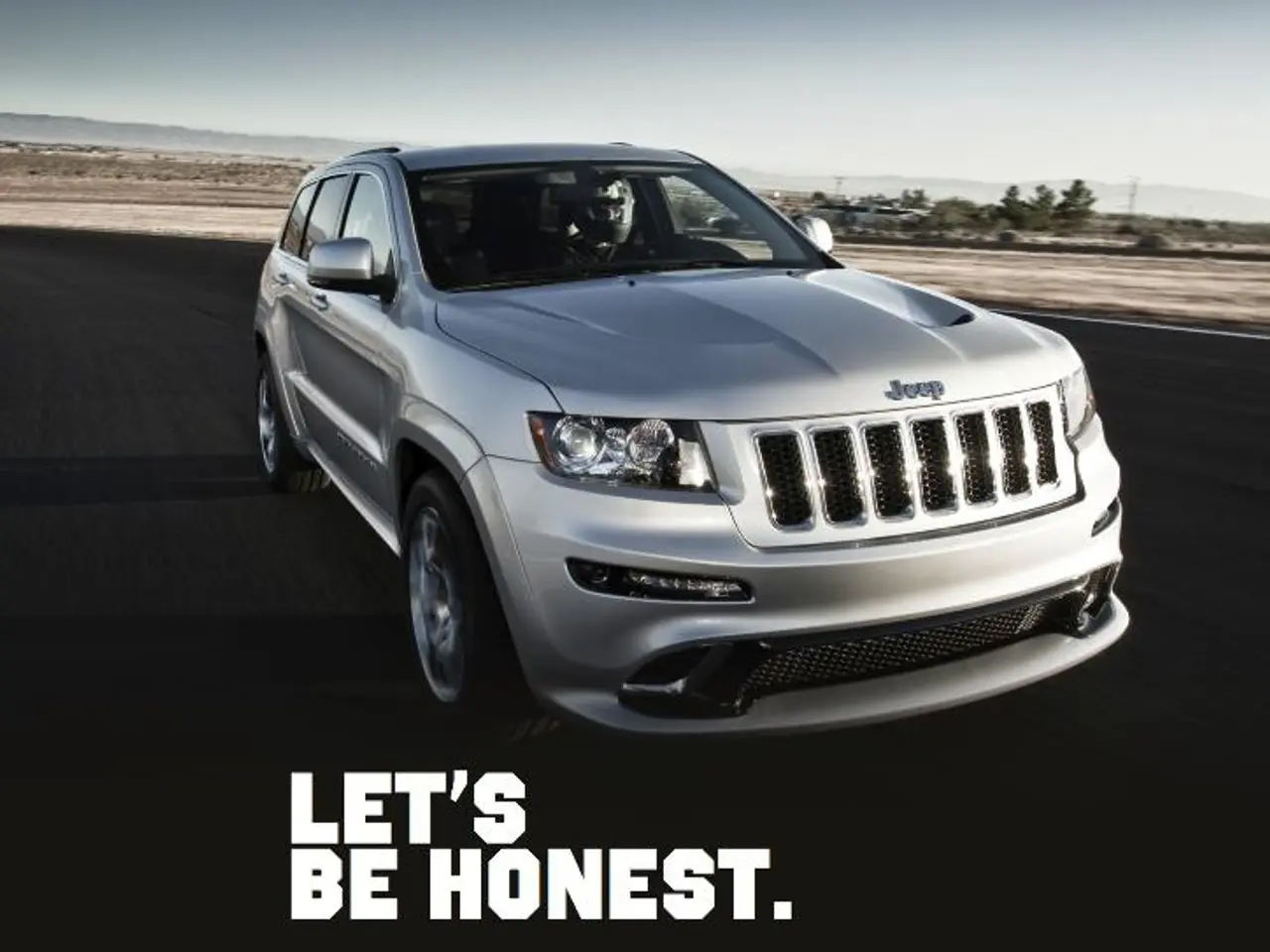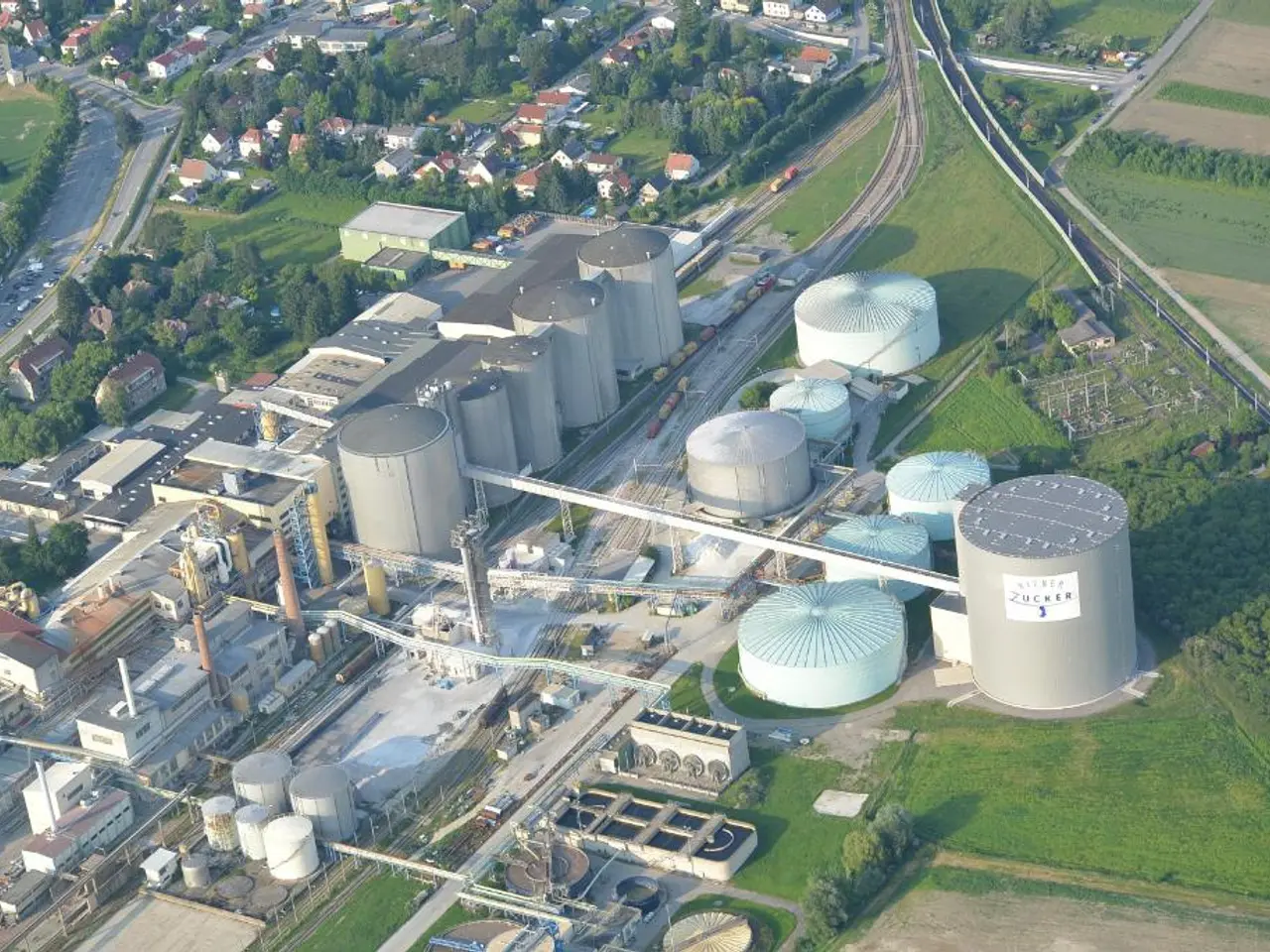Automotive suppliers now prioritize sustainability as a crucial factor in their operations.
In the rapidly evolving world of automotive technology, Webasto Group is leading the charge towards a greener and more sustainable future. Michael Halser, the spokesperson for Battery and Thermal Solutions at Webasto, is available for press inquiries regarding the company's sustainability initiatives.
The push for environmentally and socially compatible standards, as mandated by various governments and embodied in the Paris Climate Agreement, has not gone unnoticed by Webasto. Recognising the importance of this global effort, the company has adopted several key sustainability strategies.
One such strategy is the development of the "EcoPeak" sustainable roof concept. This innovative design reduces CO2 emissions of vehicle roof systems by up to 30%, thereby enhancing the vehicle's range and supporting more efficient and environmentally friendly mobility.
Webasto's commitment to electrification technologies is another cornerstone of its sustainability strategy. The company is focusing on high-performance heating and battery systems tailored for electric vehicles, contributing to dynamic electromobility and reducing reliance on fossil fuels.
Sustainability is not confined to Webasto's products; it is also integrated into the company's production processes. By actively supporting industry transformation with future-oriented, eco-friendly solutions, Webasto is positioning itself as an innovator in sustainable vehicle technology and greener mobility solutions.
The company's efforts to reduce emissions extend beyond production and operation. Webasto is equipping more of its over 50 worldwide locations with photovoltaic systems or using green power, and 21 percent of its global electricity demand is now covered by renewable sources.
In September 2024, Webasto presented an EcoPeak roof concept that focuses on bio-based and recycled materials and uses solar cells to supply the vehicle with electricity in a climate-friendly way. This forward-thinking approach demonstrates Webasto's commitment to a sustainable future.
Webasto's sustainability strategy is not merely an obligation but also a great opportunity to compete and remain future-proof. The company's focus on appropriate technologies and resource-saving production has secured competitive advantages, positioning it as a leader in the automotive supply industry's transition to a climate-friendly and sustainable future.
In Europe, the requirements of the European Green Deal are particularly ambitious, leading to significant changes in industries. Webasto, like many other companies, is adapting to these challenges by implementing clear responsibilities, new processes, and digitalization. This enables faster measurement of progress and more effective pursuit of the sustainability strategy.
Innovative approaches and the integration of sustainable practices across all business areas can benefit the environment, society, and companies economically. For example, in the production of battery systems and heating devices, Webasto is focusing on making products more recyclable and lighter.
The materiality analysis, conducted in June 2021, surveyed key stakeholders to understand their expectations and set target settings. This comprehensive approach ensures that Webasto's sustainability strategy aligns with the needs and expectations of its stakeholders.
Despite increased turnover in the 2023 business year, Webasto has decreased its energy consumption, demonstrating the company's commitment to resource efficiency. In 2024, significant efforts were made to collect more comprehensive and reliable data, further enhancing the company's ability to measure and improve its sustainability performance.
A battery storage system in Webasto's German plant in Schierling helps to efficiently use the electricity generated on-site and balance fluctuations in energy demand. This system, along with the company's other sustainability initiatives, positions Webasto as a trailblazer in the adoption of sustainable practices in the automotive supply industry.
[1] Source: Webasto Group press release, "Webasto presents EcoPeak roof concept at IAA Mobility 2021," 14 September 2021. [2] Source: Webasto Group press release, "Webasto focuses on electrification and sustainability," 10 March 2021. [3] Source: Webasto Group press release, "Webasto sets course for sustainable future," 19 October 2020. [4] Source: Webasto Group press release, "Webasto increases use of renewable energies," 17 March 2021. [5] Source: Webasto Group press release, "Webasto invests in sustainable production," 20 May 2021.
- Webasto Group, a leader in the automotive technology industry, is focusing on sustainability initiatives, as mandated by global environmental efforts like the Paris Climate Agreement.
- The company's strategy includes developing the "EcoPeak" roof concept, an innovative design that reduces CO2 emissions by up to 30% and supports efficient, environmentally friendly mobility.
- Webasto is also leveraging electrification technologies, focusing on high-performance heating and battery systems for electric vehicles, contributing to dynamic electromobility.
- In addition to product development, Webasto integrates sustainability into its production processes, positioning itself as an innovator in sustainable vehicle technology.
- The company's commitment to reducing emissions extends to its facilities; it has equipped over 50 global locations with photovoltaic systems or green power, covering 21% of its global electricity demand with renewable sources.
- In 2024, Webasto presented an EcoPeak roof concept that focuses on bio-based and recycled materials, using solar cells to provide vehicles with electricity in a climate-friendly way, demonstrating the company's forward-thinking approach to sustainability.




